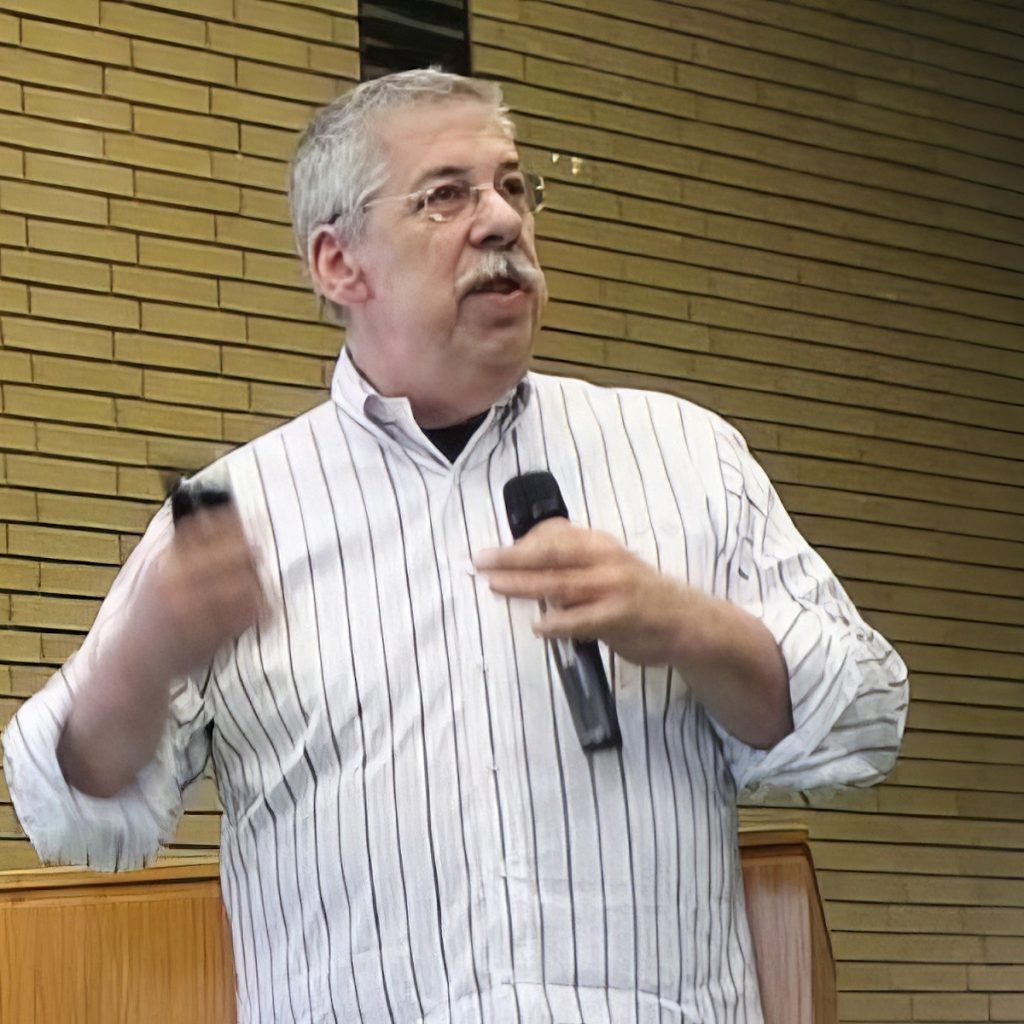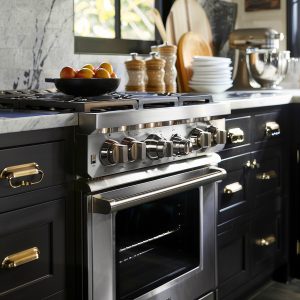Cutlery Expert Peter Hertzmann
Peter Hertzmann is the creator and illustrator of his website called à la carte and the author of an incredible new book on knife skills called Knife Skills Illustrated. I heard Peter on an Internet interview with Ann & Peter Haig and emailed him asking if he would like to be interviewed on Novice2Pro.
He agreed to do this interview and wrote an immensely informative article for my visitors called How to Choose a Knife, which you can find on my cooking blog. If you are thinking of purchasing a knife, you must read this article first or buy his book to learn how to properly use the knife.
Peter not only knows about cutlery, but he also knows a lot about French cooking. He is a cooking instructor at Sur la Table and also teaches privately in France and the United States. We are fast becoming good Internet friends, and I want to persuade Peter to contribute more. We are even talking about doing a few short video demonstrations. Stay tuned.
Interview with Cooking Instructor & Knife Expert & Author Peter Hertzmann
According to your website, you are an “obsessive” person who became obsessed with Chinese and French cookery. When did you become obsessive about kitchen cutlery, and why knives?
I don’t consider myself obsessive when it comes to knives. I have accumulated a fair number of them to use as examples in my classes, but I only have a few for normal use. Also, I don’t spend lots of time on knives like I do on French cuisine.
Not only did you learn everything you could about “the art of the knife,” but you also wrote a wonderfully written, beautifully illustrated step-by-step book called Knife Skills Illustrated about how to properly use knives in the kitchen. What were you trying to accomplish with this book?
I didn’t plan to write a book. In February 2005, I published an extensive article on knife skills on my website. I envisioned the article as a “manual” for people who took knife-skills classes but needed written information to take with them. This was the second of what was to become three articles on my site regarding knives.
The first was a general article on knives in French cooking, and the most recent dealt with sharpening knives and keeping them that way. The February article was seen by a literary agent in NYC who thought it would make a good book. He was able to sell it quickly to a publisher. All along, my interest stayed the same; I wanted to produce the “user’s manual” that the knife companies never provide with their knives.
There are lots of readers out there who would love to write a cookbook someday so let me ask you a little about the process. How long did it take you to write Knife Skills Illustrated?
Since I already had previously written material, I was able to produce the first draft in a couple of weeks. If I had started with no previous material, it probably would have taken a couple of months.
How did you come up with the idea and then publish your book?
As I said before, I wanted to produce the manual that the knife manufacturers didn’t supply with their product. The idea to publish it in book form wasn’t my own.
How difficult was the process?
Difficult—no. Frustrating—often. But my agent was very good at keeping the publisher in line. I was constantly flummoxed by the publisher’s poor use of computers and software, which I am quite skilled at.
What advice would you give someone who thinks publishing a cookbook would be something they would like to pursue?
Before spending the time and money to complete the book, I recommend writing a proposal and getting an agent. If the agent can sell the book to a publisher, proceed with the writing. If someone wants to self-publish, they need to write the book and establish a distribution chain. Distribution can be traditional or even online.
Let’s get back to what you talk about in Knife Skills Illustrated. In your opinion, why are knife skills so important for home cooks to learn?
I believe that good knife skills will not make you a great cook, but they can make you a better one.
As someone who teaches knife skills, what are the top 5 mistakes you see novices make when it comes to handling and working with kitchen knives?
Knife Skills Mistakes
The three most important things I have to teach someone are how to hold a knife, how to always “saw” with it, and how to hold the item being cut. Most students start off doing two or three of these things incorrectly.
Most of us have to cook most of our meals. If you think about it, that is a lot of meals each year, so I’m always surprised when I go to friends’ houses and find they have an inexpensive set of knives. To prepare anything, some knife use is involved. So why is owning at least one or two quality knives important?
A good quality knife will work much better than a poor quality knife if the user possesses the proper knife skills. By the way, good quality doesn’t necessarily mean expensive.
If you purchased just two knives, what would they be and why?
I prefer having the largest chef’s knife and the smallest paring knife. In a chef’s knife, I prefer one with no bolster, a rounded heel, a smooth-edged spine, a straight cutting edge, and with a 10-inch long blade. I prefer a paring knife with a blade less than 3 inches in length, a sharp tip, and a short handle.
With so many different types of knives on the market, how should someone go about purchasing a new knife? What features should they consider and how do these features translate to ease of use?
The feel is the most important aspect to consider. All knives should be test-driven before purchase. Looks are not as important as functionality and comfort.
We are hearing more and more about Japanese cutlery. How are these knives different from more traditional knives and what are their advantages?
The term “Japanese cutlery” is way too general. Japanese manufacturers make a wide range of knives, just like the Europeans do. There are certain Japanese brands that produce superior blades with finer bevels than standard European-produced blades, but there are also Japanese brands that produce cheap crap.
Is there a right way and wrong way to hold a knife? Does it really matter?
Yes, and yes. I am a huge fan of the pinch grip for essentially all chef’s knives and some paring knives and a choke grip for the remainder. But many great chefs would disagree with me. Of course, there are others who would agree with my methods. I have found these grips best for students.
How can learning proper knife skills make cooking faster and easier?
It can make mise en place faster and easier.
You book carefully illustrated how to bone a chicken. Why not just buy boneless chicken breasts and thighs at the market?
I like to cut up and bone out chickens myself for many reasons. First and most importantly, I can control the quality of the final product. Second, I have different ways of cutting the chicken for different uses. Third, it saves money. Fourth, I have waste materials, such as the necks and backs, to use in stocks.
Are there any ways we can practice our knife skills without doing irreversible harm to something we are preparing for dinner?
Onions, carrots, and zucchini are all inexpensive. Buy a bunch of each and practice. The results can be used in stocks or composted.
Why is it so important to keep your knives sharp and how to you recommend sharpening them?
It’s important because a sharp knife requires less force, and the user is less likely to have an accident if less force is used for cutting. I don’t have a single way to sharpen knives because the best method for one knife won’t be the best for another knife of a different design. Plus it’s important to always saw—I tell my students to slice not chop—with a knife, to store a knife properly, to use the right cutting board, and to clean the knife correctly—all of which will help to keep it sharp.
Peter, did you teach yourself how to use a knife or did you have a mentor?
Both. I learned the pinch grip from Martin Yan back in the 1980s. I learned some of the cutting techniques from him, some from other chefs I worked with in France, and some on my own.
Thank you for this interview and I look forward to learning much more from your incredible book, Knife Skills Illustrated, and future conversations.
RG




